Roxane Gay’s Hunger is a powerful memoir exploring themes of body image, trauma, and self-acceptance. Gay shares her personal journey with food and weight, offering a raw, unflinching perspective on identity and resilience.
Overview of the Memoir and Its Significance
Hunger: A Memoir of (My) Body is Roxane Gay’s deeply personal exploration of her relationship with her body, food, and identity. The memoir delves into her experiences with weight, trauma, and societal expectations, offering a candid reflection on self-image and resilience. Gay’s work is significant for its unflinching honesty and its challenge to cultural norms surrounding body image, making it a powerful contribution to conversations about identity, trauma, and self-acceptance in contemporary society.
The Central Theme of Body Image and Identity
In Hunger, Roxane Gay examines the intricate relationship between body image and identity, revealing how societal beauty standards and personal trauma shape self-perception. Gay describes her body as “wildly undisciplined,” reflecting the tension between desire and denial. Through her narrative, she challenges the notion of a singular body ideal, advocating for self-acceptance and the reclamation of one’s identity beyond cultural expectations. This theme resonates deeply, offering readers a profound exploration of how bodies are perceived and experienced in a world fraught with judgment.

Exploration of Body Image in “Hunger”
Roxane Gay’s memoir delves into the complexities of body image, portraying the body as a “wildly undisciplined” entity shaped by societal expectations and personal struggle.
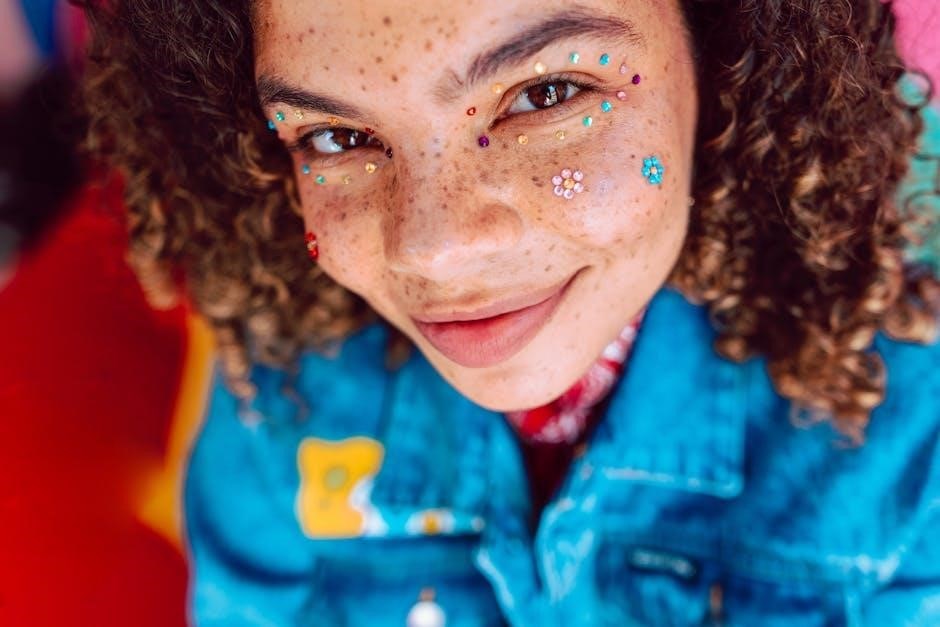
Portrayal of the Body as a “Wildly Undisciplined” Entity
Roxane Gay describes her body as “wildly undisciplined,” reflecting her complex relationship with weight, food, and societal expectations. Her narrative reveals how her body became both a source of safety and confinement, shaped by trauma and self-protection. Gay’s portrayal challenges traditional notions of beauty, emphasizing the tension between desire and denial. Through her experiences, she illustrates the struggle to reconcile self-image with a body that feels out of control, offering a raw exploration of identity and resilience.
The Impact of Societal Beauty Standards on Self-Perception
Roxane Gay critiques societal beauty standards and their profound impact on self-perception, particularly for women. She reflects on how these norms distort self-view, emphasizing the unattainable ideals that lead to self-loathing and shame. Gay’s journey reveals how internalizing these standards can create a disconnect between one’s body and identity. Her narrative underscores the struggle to reconcile personal worth with a society that often sees bodies like hers as unacceptable, offering a powerful critique of cultural norms and their lasting effects on mental health and self-acceptance.

The Role of Food and Eating in the Memoir
Food serves as both solace and struggle in Roxane Gay’s memoir, where eating becomes a coping mechanism for emotional pain, leading to a complex relationship with her body and identity.
Food as Comfort and Conflict
In Hunger, Roxane Gay portrays food as a dual entity—both a source of comfort and a catalyst for conflict. She recounts how eating became a coping mechanism for emotional pain, offering temporary solace while perpetuating a cycle of guilt and self-loathing. Gay’s relationship with food is deeply intertwined with her body image, as she often used overeating to shield herself from vulnerability, yet this pattern also fueled her internal struggles and societal perceptions of her body. This duality underscores the memoir’s exploration of food as both a necessity and a battleground.
Eating Disorders and the Struggle for Self-Control
Roxane Gay’s memoir delves into her tumultuous relationship with food, revealing how eating disorders became a manifestation of her emotional pain. She describes cycles of overconsumption and guilt, highlighting the struggle to exert control over her body and desires. Gay’s narrative exposes the societal pressures that exacerbate disordered eating, as she grapples with the duality of seeking comfort in food while confronting the stigma of not conforming to beauty standards. This internal conflict underscores her broader journey toward self-acceptance and healing.
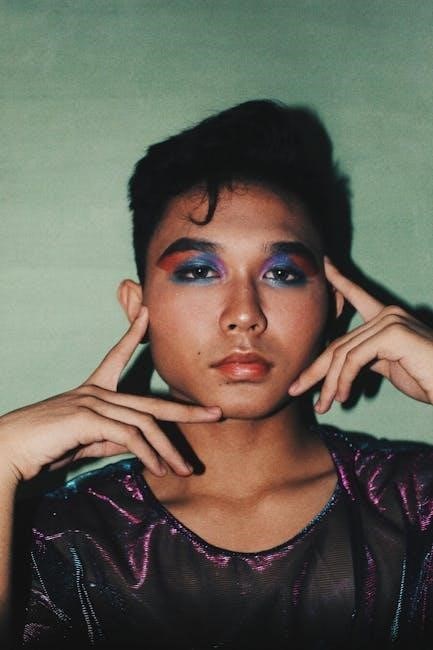
Trauma and Its Aftermath in “Hunger”
Roxane Gay confronts a life-altering act of violence, weaving its aftermath into her narrative. The memoir traces her journey through pain, resilience, and the quest for healing.
The Life-Altering Act of Violence and Its Consequences
Roxane Gay recounts a traumatic act of violence in her youth, which profoundly shaped her relationship with her body. This event led to feelings of vulnerability and a distorted self-image, influencing her eating habits and self-perception. The memoir delves into how this trauma became a catalyst for her struggles with weight and identity, highlighting the long-lasting emotional and psychological consequences that resonated throughout her life.
Healing and the Journey Toward Self-Acceptance
In Hunger, Roxane Gay reflects on her path toward healing and self-acceptance. She explores the complexities of recovery, acknowledging both progress and setbacks. Gay emphasizes the importance of confronting past traumas and societal expectations, advocating for self-compassion and resilience. Her journey underscores the challenging yet transformative process of reclaiming one’s body and identity, offering a poignant narrative of survival and growth.

Societal Expectations and Body Shaming
Societal expectations impose rigid beauty standards, fostering body shaming and negative self-perception. Roxane Gay critiques these norms, highlighting their impact on self-image and identity in Hunger.
How Cultural Norms Shape Attitudes Toward Weight and Appearance
Cultural norms dictate acceptable weight and appearance, influencing self-perception and societal judgment. Roxane Gay’s Hunger critiques these standards, highlighting how they perpetuate shame and marginalization, particularly for women. Gay’s experiences reflect the broader societal pressure to conform to unrealistic beauty ideals, which often lead to internalized self-blame and a distorted relationship with one’s body. Her memoir underscores the pervasive impact of these norms on mental and emotional well-being, emphasizing the need for radical self-acceptance in a world that often demands conformity.

Resisting and Subverting Societal Messages About Body Image
Roxane Gay’s Hunger challenges societal beauty standards by embracing body positivity and self-acceptance. Gay critiques the diet culture and unrealistic expectations imposed on women, advocating for a radical redefinition of worth beyond physical appearance. By sharing her own struggles, she subverts the notion that bodies must conform to narrow ideals, encouraging readers to reject shame and reclaim their identities. Her memoir becomes a powerful tool for resistance, fostering a dialogue about self-love and the freedom to exist unapologetically in one’s body.
The Intersection of Race, Gender, and Body Image
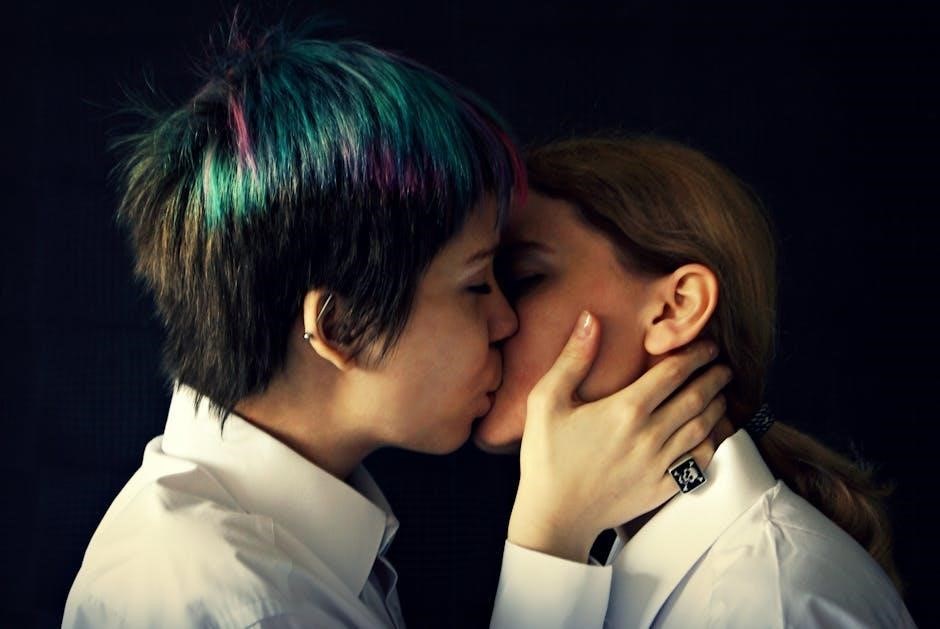
Roxane Gay’s memoir explores the unique challenges faced by women of color, highlighting how race, gender, and body image intersect to shape self-perception and societal acceptance.
Unique Challenges Faced by Women of Color
In Hunger, Roxane Gay illuminates the intersecting challenges women of color face, navigating race, gender, and body image. Societal beauty standards often marginalize Black women, perpetuating stereotypes and exclusion. Gay’s narrative underscores how these intersections amplify struggles with self-acceptance and identity. She reflects on her own experiences, highlighting the double burden of racism and sexism in shaping perceptions of her body. This intersectional perspective reveals the profound impact of cultural norms on self-image and resilience.
Intersectional Perspectives on Body Positivity and Self-Care
Roxane Gay’s Hunger offers a powerful exploration of body positivity and self-care through an intersectional lens. She emphasizes how race, gender, and body image intersect, advocating for inclusivity in conversations about self-acceptance. Gay challenges societal beauty norms, particularly those that marginalize women of color, and highlights the resilience required to embrace one’s body in a world that often seeks to erase it. Her narrative underscores the importance of self-care as both a form of healing and a radical act of resistance.
Roxane Gay’s Writing Style and Narrative Voice
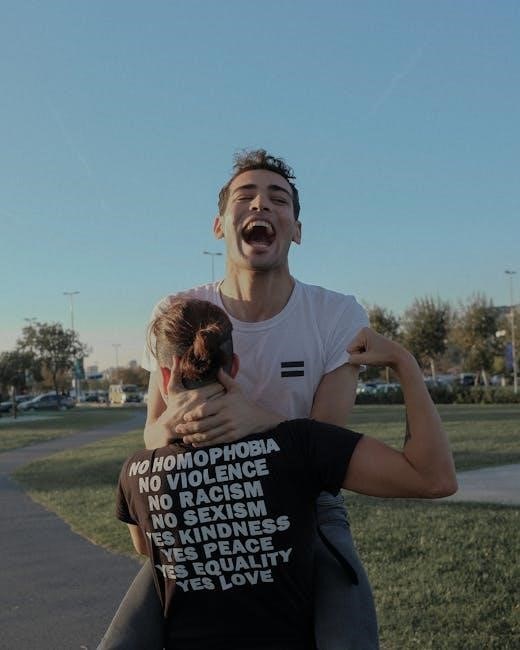
Roxane Gay’s narrative voice in Hunger is marked by raw vulnerability and unflinching honesty, as she confronts taboo topics like body image and trauma with lyrical precision and emotional depth.
The Use of Vulnerability and Honesty in Storytelling
Roxane Gay’s memoir Hunger is defined by her unflinching vulnerability and honesty. She openly shares her struggles with body image, food, and trauma, creating a deeply personal narrative. Gay’s willingness to confront painful truths allows readers to connect with her journey on a profound level. Her raw storytelling breaks down taboos, fostering empathy and understanding. This honesty not only highlights her resilience but also challenges societal norms, making her voice a powerful force in contemporary literature.
Breaking the Silence on Taboo Topics
Roxane Gay’s Hunger courageously addresses taboo subjects like fatness, sexual assault, and eating disorders. By sharing her personal struggles openly, she challenges societal norms and stigmas surrounding these topics. Gay’s unflinching narratives create a space for dialogue, fostering empathy and understanding. Her willingness to confront these sensitive issues not only empowers readers but also encourages them to reflect on their own experiences. This memoir is a testament to the power of speaking truth to pain and breaking the silence that often surrounds it.
Reception and Impact of “Hunger”
Roxane Gay’s Hunger has received widespread critical acclaim for its raw honesty and relatability, resonating deeply with readers and sparking vital conversations on body image and identity.
Critical Acclaim and Reader Responses
Roxane Gay’s Hunger has garnered widespread critical acclaim for its unflinching honesty and profound exploration of body image, trauma, and identity. Readers have deeply connected with Gay’s vulnerability, praising her ability to articulate universal struggles with self-acceptance. The memoir has been hailed as a necessary contribution to conversations on weight, food, and societal expectations, resonating with a broad audience and solidifying its place as a contemporary literary staple.
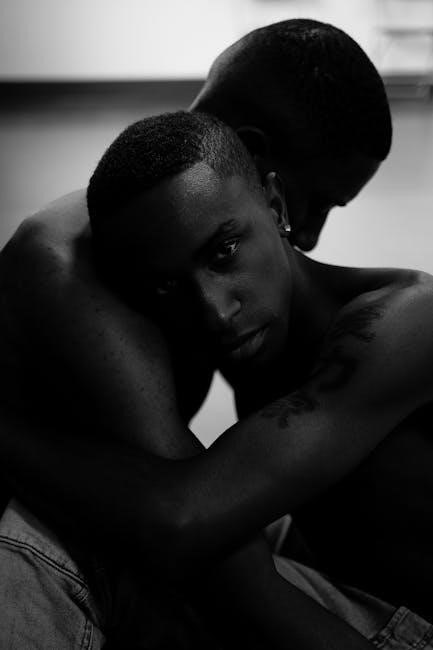
The Memoir’s Contribution to Contemporary Conversations on Body Image
Hunger stands as a pivotal work in modern discussions on body image, challenging societal norms and offering a deeply personal perspective. Gay’s narrative voice, marked by vulnerability and honesty, has inspired countless readers to reflect on their own relationships with their bodies. The memoir’s unflinching examination of weight, trauma, and self-perception has fostered a broader cultural dialogue, encouraging greater empathy and understanding in the way we discuss and view body image today.
Roxane Gay’s Hunger offers a profound exploration of identity, resilience, and societal expectations, leaving readers with a lasting message about self-acceptance and the power of vulnerability.
Final Thoughts on the Memoir’s Message and Relevance
Roxane Gay’s Hunger is a deeply personal and universal exploration of body image, trauma, and self-acceptance. Its unflinching honesty resonates widely, offering readers a mirror to reflect on societal expectations and personal struggles. Gay’s vulnerability transforms pain into power, making Hunger a vital contribution to conversations about identity, resilience, and the human experience. Its relevance endures, inspiring readers to confront their own journeys toward healing and self-love with courage and empathy.